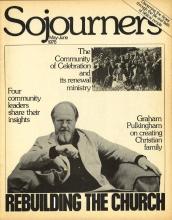CIA Director George Bush, agreeing partially to the urgings of Senator Mark O. Hatfield, has informed him that the CIA will not take any initiative abroad requesting voluntary foreign intelligence information from American clergy and missionaries.
CIA policy, however, will continue to allow such initiatives to be taken with American missionaries and clergy when they are in this country, as well as accept information freely volunteered to the CIA by them at any place.
The policy does not apply, however, to the CIA’s use of pastors or missionaries from other countries. But American employees of religious relief organizations have been included in its scope.
In the wake of these developments, Senator Hatfield will not push the original legislation he introduced last year to totally ban the CIA’s use of all clergy and missionaries for intelligence or operational purposes.
Last fall Hatfield had urged the Ford Administration to implement such a ban; former CIA director William Colby refused to do so, and Ford’s White House Counsel Philip Buchen described missionaries as “valuable sources of intelligence” (see January Sojourners).
Since that time, several mission boards have adopted policy statements prohibiting or advising against any contact between their missionaries and the CIA, and many have communicated their deep concern over its position and CIA activities in this area. Evangelical writer Joe Bayly recently proposed that U.S. foreign missionary agencies dismiss any staff person who has contact with the CIA and ban all such contact as a strict matter of policy.
Read the Full Article

